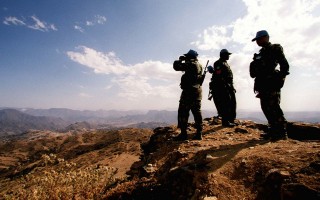A United Nations investigator has reacted to the current crackdown in Eritrea, a problem that has resulted in human rights abuses, infringement of basic and spiritual freedom, according to a new report.
The country, led by President Isaias Afwerki, is not operating a functional constitution and has never held a national election. Arbitrary detention is commonplace, and citizens are required to perform national service, often for their entire working lives.
Eritrean secondary education also serves as a conscription machine that subjects students to forced labour and physical abuse as they are groomed for indefinite government service. The Global Slavery Index estimates that 93 out of every 1,000 citizens are living in a form of modern slavery in the country, which ranked second-worst in the world.
In 2018, there were hopes that after a historic peace settlement with Ethiopia, it would institute reforms. That is yet to be materialized, however, with a UN report on its human rights conditions discovering widespread human rights violations, together with arbitrary arrest, enforced disappearances, sexual violence, and torture.
An investigation on the state of affairs of human rights in the eastern country by Daniela Kravetz condemned the federal government’s repression of spiritual freedom. According to her, Christians worshipping without authorities’ approval are arrested while Muslims are also arrested and jailed.
Recently, the government closed down Catholic-run schools and hospitals, saying it was imposing old regulations that stipulate that religious bodies cannot run such institutions. In this regard, the government, with no respect to the human right, had given a directive to bar the Ethiopian Catholic priest, Berhaneyesus Demerew from entering the country.
The cleric was due to attend an event marking the 50th anniversary of the construction of Kidane Mehret Cathedral in Eritrea’s capital, Asmara. He had arrived at Asmara airport but was obliged to return to Ethiopia the next afternoon after fruitless attempts to reach the crowd gathered to welcome him.
Kravetz sees no justification for the country’s failure to reform its obligatory nationwide service. Also, the government’s failure cannot be justified on the grounds of the financial challenges in the country, where there are no job creation or wage hikes for conscription, she added.
“There are, nonetheless, speedy measures that the authorities might take that don’t rely upon financial reforms, resembling stopping the continuing roundups of youth for compelled conscription, separating secondary training from navy conscription and putting in mechanisms to watch and stop abuses towards conscripts, specifically towards feminine conscripts,” she stated.
Kravetz further called for the release of all political detainees and other prisoners that were locked up of conscience. “People are arbitrarily arrested because of their opposition to the government or their beliefs as conscientist objectors,” she said, also noting that many of the prisoners have been jailed for decades without any recourse to justice or relief.
Meanwhile, Eritrean Ambassador to the UN, Tesfamicael Gerahtu, calls the report “politically-motivated and ill-intentioned,” adding that it portrayed his country in a negative light and does not reflect any of its positive achievements.
Defending the African government, Gerahtu noted the fact that the eastern country is at peace after two decades of conflict but in the process of resolving the social and economic problems that have arisen in the past.
By Ahmed Iyanda.








